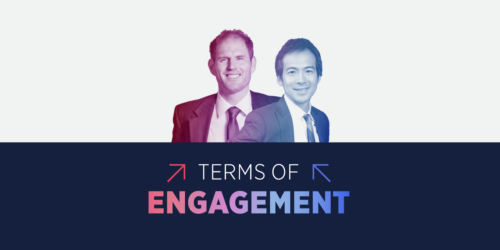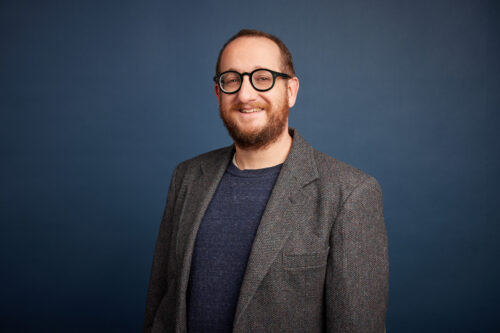Political and legal fights over voter registration deadlines and polling locations are only intensifying as the United States lurches towards one of the most consequential and unprecedented elections in generations, leading many observers to ask, “Does it have to be this way?” Chief among the critics of this unfolding drama of voter suppression, voter disinformation, and an election system nearly brought to its knees by the COVID-19 pandemic is Miles Rapoport, Ash Center senior practice fellow in American democracy. As aformer Connecticut secretary of the state, he should know—Rapoport was responsible for running the state’s elections. “What we’ve seen over the last few weeks, with uncertainty over voting rules, lawsuits filed by the dozens, and general confusion about what Election Day should look like, isn’t a flaw in the system. It’s just a further illustration of how our decentralized, often politically driven and in some cases poorly administered election system was designed to function,” he says.
Rapoport, like numerous advocates and scholars around the country, has been following thiselection season with great alarm. “The dramatic shift we’ve seen to early voting and absentee voting has laid bare the many inadequacies of our current voting system.” While the US often styles itself as the world’s defender of democracy, in truth, barely a majority ofAmericans cast votes in the last presidential election. Midterm and other off-year elections sometimes see as few as a third of eligible voters turn up at the polls. “The truth is, we’ve built a system in this country that erects many barriers and makes it difficult for many people to vote,” adds Rapoport.
The reasons why it is so difficult to vote in the US compared with many other advanced democracies are manifold, with longstanding state and even intrastate variations in election systems and their chronic underfunding being primary culprits. And, in a number of places, voting barriers are also intentionally erected, meant to ensure that racial and other minorities are not able to exercise their constitutional rights to participate in theirdemocracy. At a 2018 conference sponsored by the Ash Center and chaired by Archon Fung, Winthrop Laflin McCormack Professor of Citizenship and Self-Government and director of the Ash Center’s Democratic Governance program, Rapoport, along with Fung and a host of other HKS faculty members and outside scholars and advocates, discussed exactly what it would take to get US voter participation to roughly 80 percent of eligible voters—a figure on par with many other advanced democracies. “The truth is that even if we could do away with many of the blatant voter suppression and disenfranchisement efforts, which are purposely designed to make voting more difficult, we still wouldn’t be close to achieving 80 percent,” said Fung during his presentation at the conference.
Fung argued that in order to significantly strengthen voter participation rates to approachthose in Europe and elsewhere, the US would have to undergo a shift that would build and foster a stronger culture of voting. This sparked an examination of what would be required to institute such a system and instill a culture of voter participation in the US. “Looking at acountry such as Australia where they legally mandate that their citizens vote, I thought that there’s no structural reason why we couldn’t do that here,” says Rapoport. “If it could work in Australia, it could work in this country.”
Joining forces with Washington Post op-ed columnist E.J. Dionne, a senior fellow with the Brookings Institution’s Governance Studies program and visiting professor at HarvardDivinity School, who also has a longstanding interest in universal voting, Rapoport set out to jump-start a new conversation on the subject. With support from both the Ash Center and Brookings, Rapoport and Dionne formed a working group of two dozen scholars, advocates,and practitioners including Fung; Cornell William Brooks, professor of the practice of public leadership and social justice; and Ash Center democracy fellow Tova Wang. The groupengaged in a series of deep discussions about both the desirability and possibility of enactinguniversal voting. Meeting over the course of eighteen months, the working group discussed everything from the constitutionality of adopting universal voting (their analysis contends that such a system would stand up to legal scrutiny) to how to enforce mandatory voter participation when punitive or other revenue generating fees such as court costs, bail, and other financial penalties are increasingly under scrutiny for their disproportionate impact on communities of color.
The working group was driven by its strong belief that universal voting could go a long way towards creating a political system where all voices would be given the same opportunity to participate in the electoral process. “Political leaders,” said the working group in its reportissued in July 2020, would be encouraged “to understand that their obligations extend to all Americans, not just to those they deem to be ‘likely voters.’ And we see it [universal or civic duty voting] as a full embrace of democracy: It insists that every citizen has a role to play in our nation’s public life and in constructing our future.” For Rapoport and the other working group members, this idea was critical: “Politicians would have to be responsive to the concerns of the entire electorate—not just the narrow minority who largely participate today.”
As Rapoport watches the squabbling over ballot drop-box locations and postmark deadlines for voting by mail play out in court and in the media, he wonders what our voting system would be like if everyone thought of voting in the same way they do jury duty. “Serving on a jury is just considered one of those facts of civic life,” he says. “Doing jury duty is one of those boring and slightly inconvenient civic obligations that people may gripe about, but that everyone understands is critical for the fair administration of justice. I would argue that ensuring all voters participate in the electoral process is critical for the fair administration of democracy.”
While Rapoport is under no illusions as to the challenges of adopting universal voting, he believes that the working group’s report represents an important starting point for a discussion on the merits of their proposal. “It’s not going to happen overnight, but no significant reforms to voting in the history of the country have, either. There was a time when the idea of allowing women or African Americans to vote was seen as outlandish. The groundwork for those reforms took years to lay. I’m convinced universal civic duty voting can have the same trajectory from radical idea to accepted norm.”




